A reach out visit menstrual hygiene conducted by Nagaland Adolescent Girls’ Club at GMS, L Khel, Kohima.
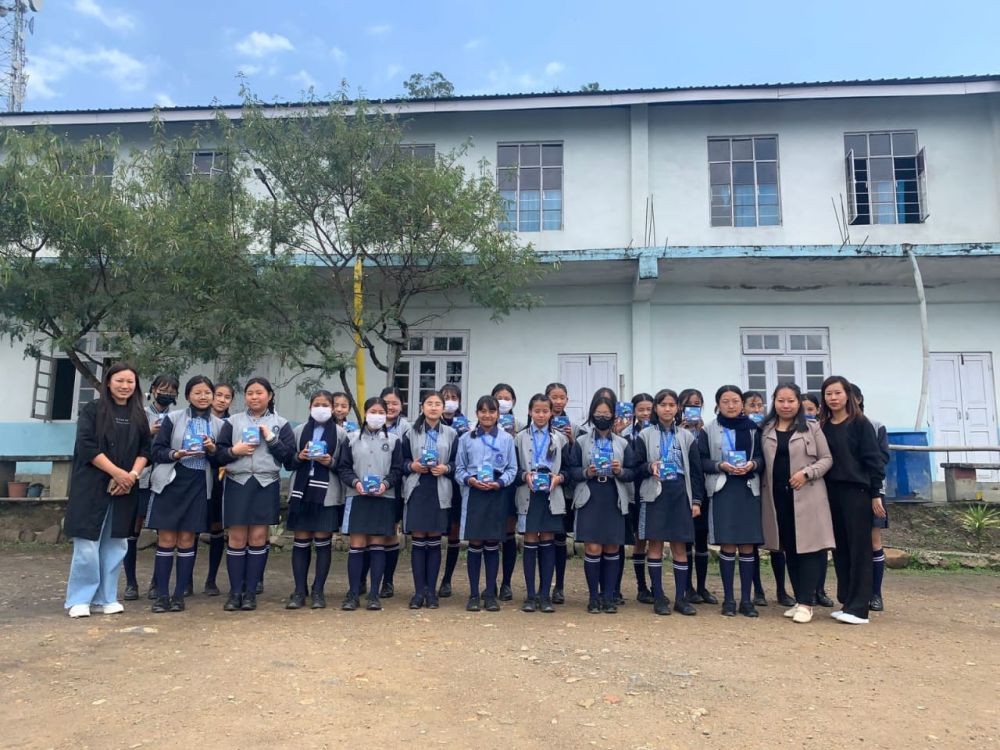
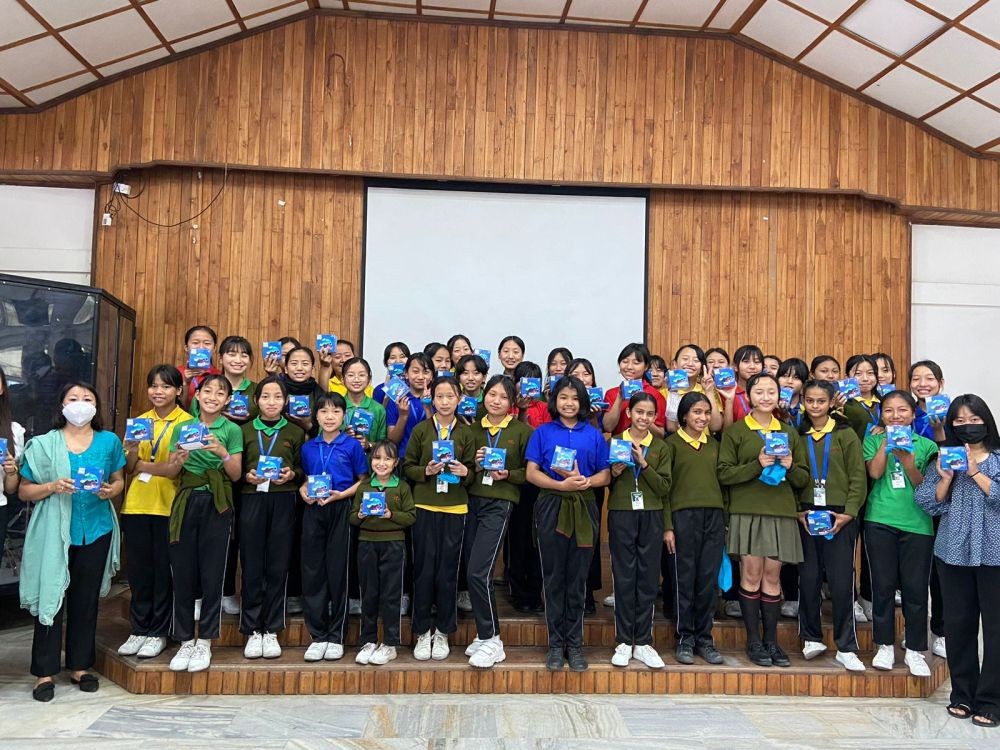
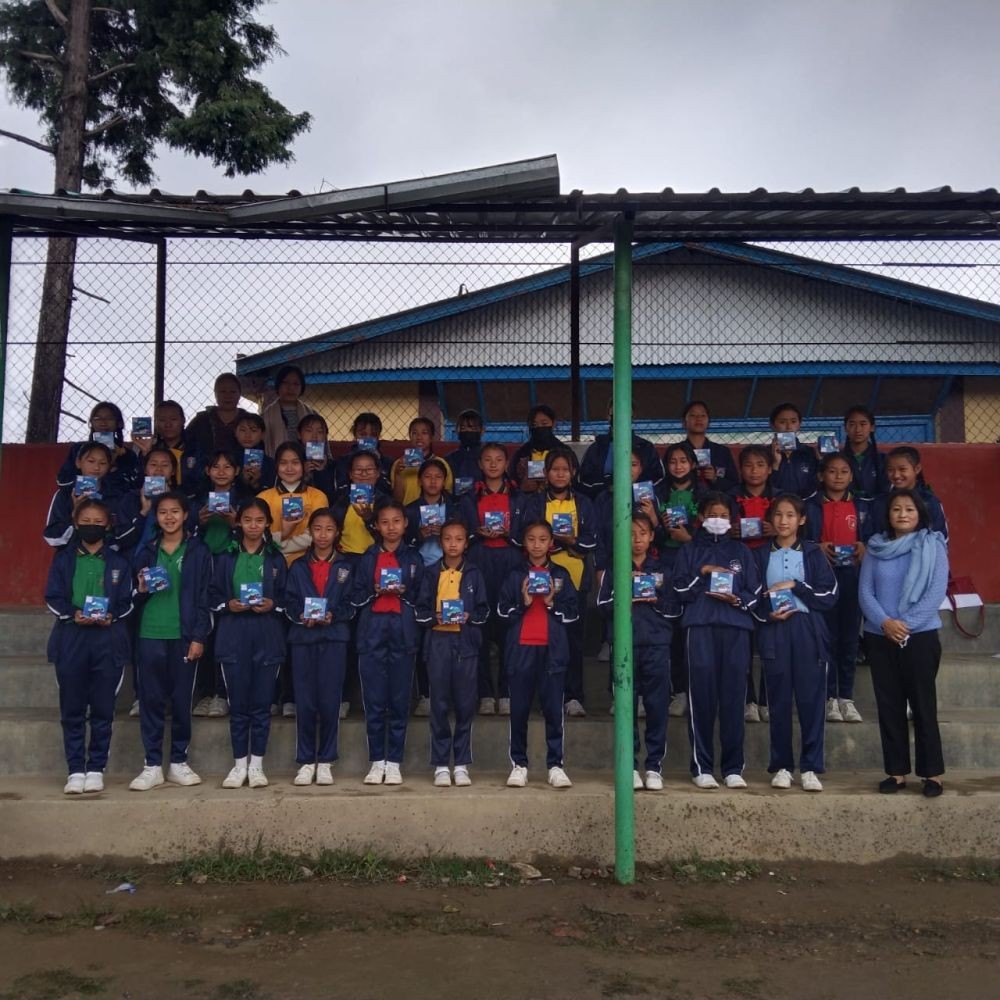
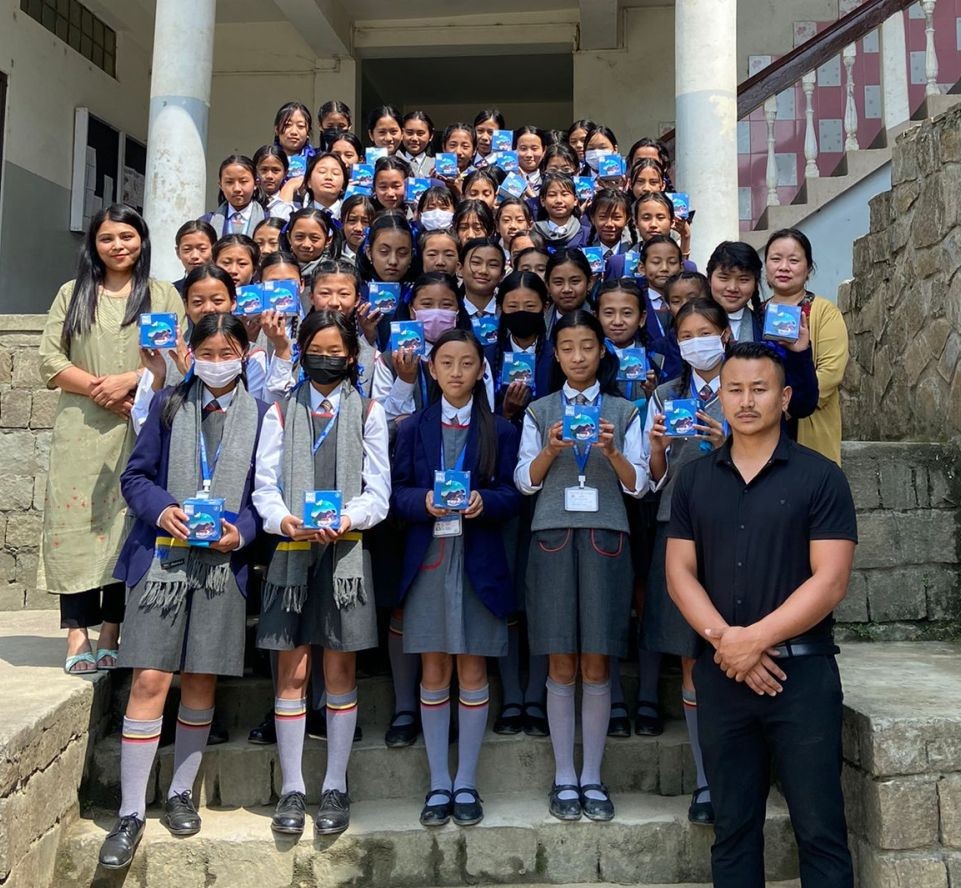
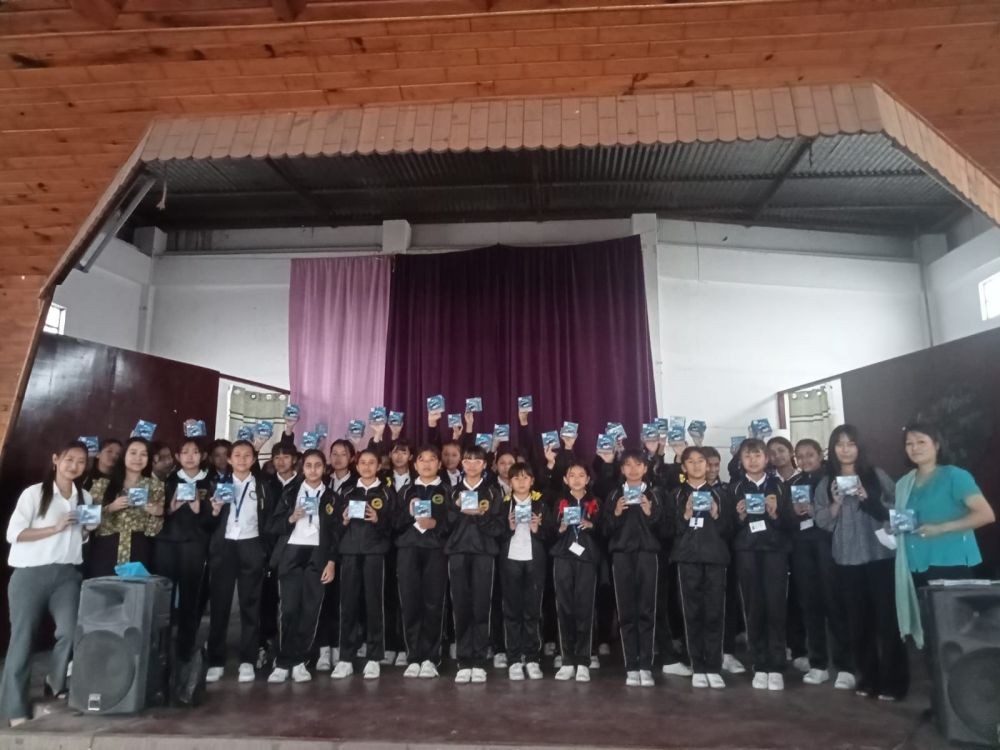
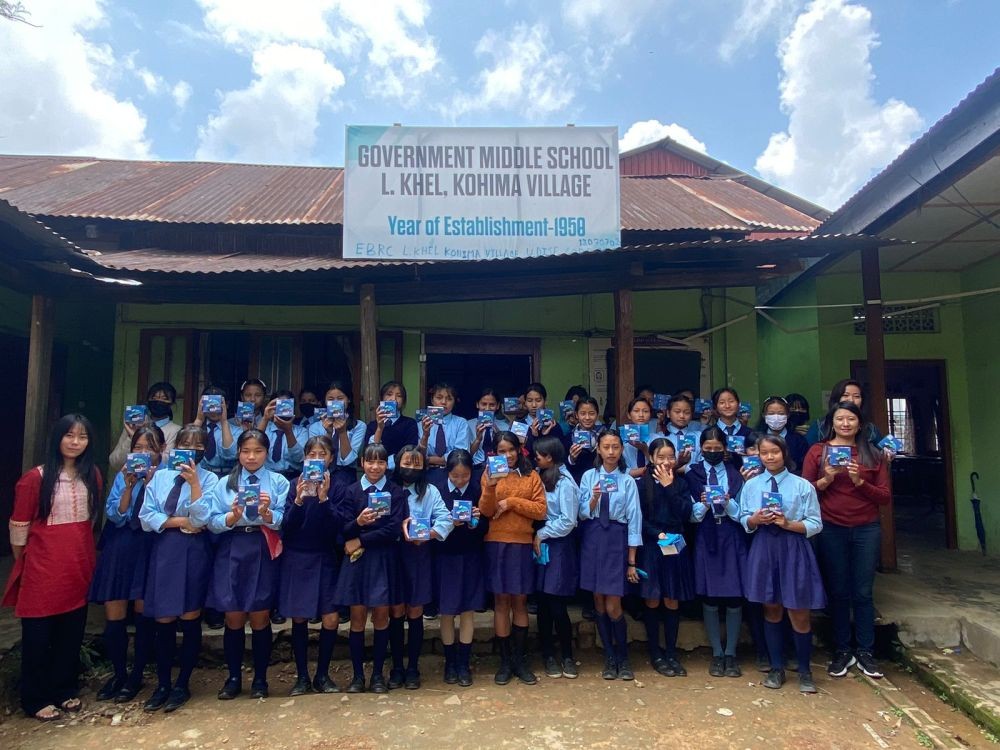
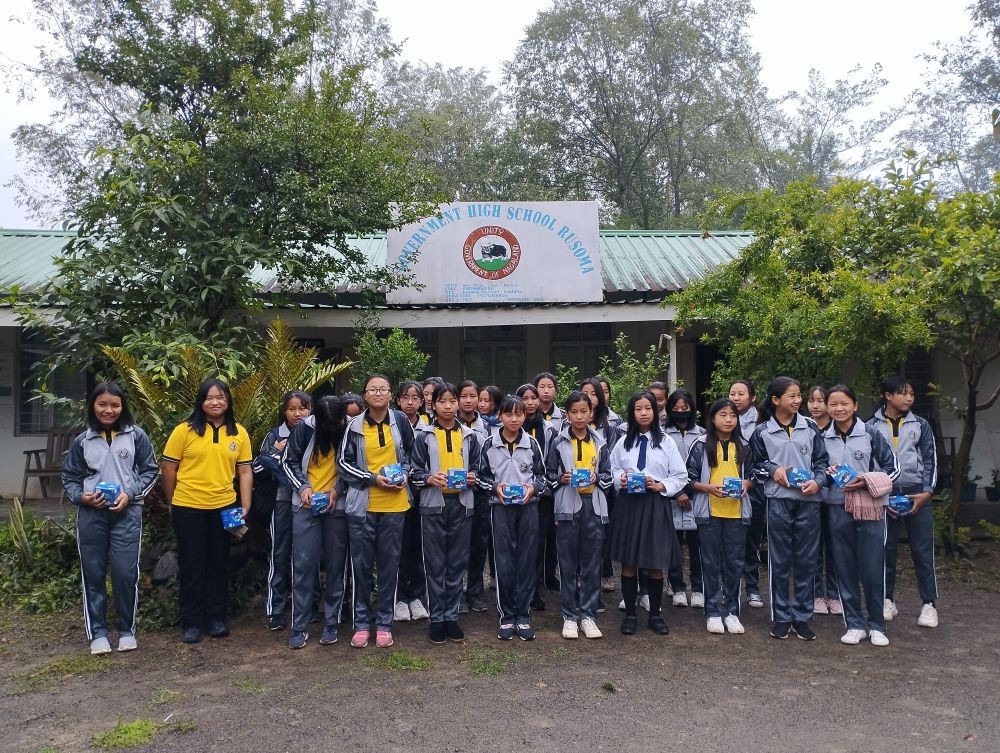
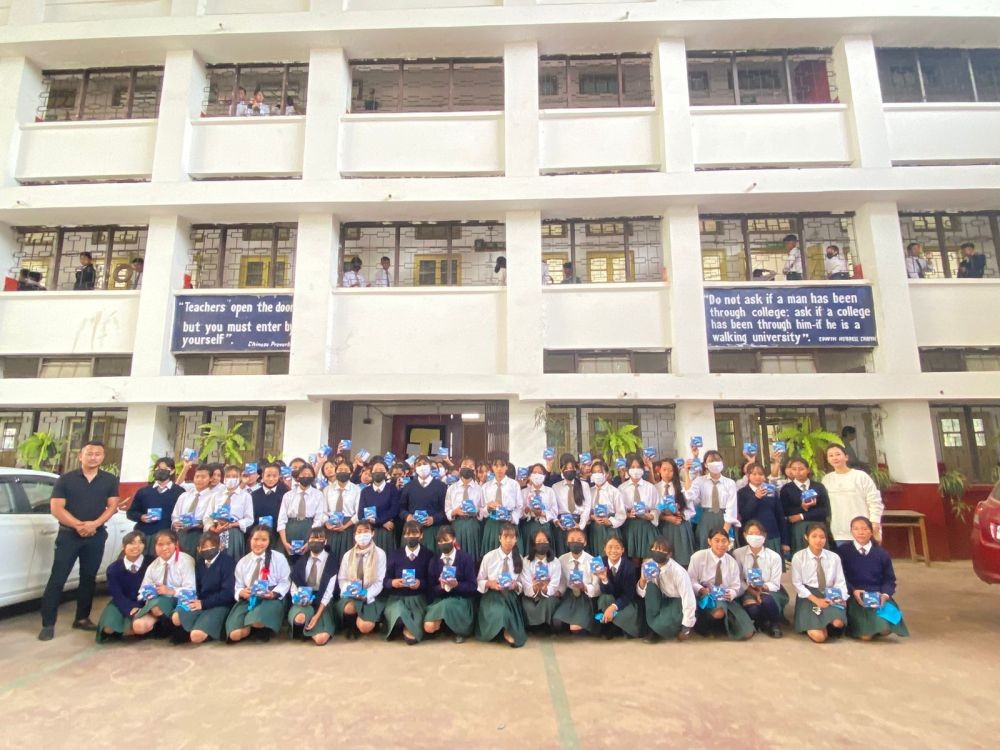
Vishü Rita Krocha
Dimapur | May 28
In many communities around the world, period taboo has affected the lives of many young girls. With little or no access to hygienic menstrual products coupled with lack of awareness and stigma surrounding it, adolescent girls continue to face untold hardships whether in school or at home. This is true even in the context of Nagaland state.
During a Nagaland Adolescent Girls’ Club (NAGC) meeting, some young girls had asked if they could find ways to earn pocket money so they can buy sanitary pads.
Speaking to The Morung Express on the occasion of Menstrual Hygiene Day (MH Day) that falls on May 28, Juliana Medom, Nodal Officer, NAGC related that the query from the girls made her ponder on questions such as: "If they struggle to pay their school fees, how do they manage to afford sanitary pads? What are the means these girls are using to get through their periods?”
Asserting that “what is very basic is considered a taboo subject”, she emphasised, “We want to talk about it because it has to become a normal thing.”
To this end, the NAGC under the Nagaland State Social Welfare Board has been visiting schools especially government schools, for intervention. This issue still needs a lot of intervention, she said, further across that, “girls miss out of school because of lack of sanitary products also.”
Intensifying their school visits in the last two weeks, they have reached out to at least 10 schools, where they sit down with girls and talk to them as friends.
Through this process, the NAGC have been also been able to give them the much needed awareness on menstrual health and hygiene.
It has been one of the goals of the State Board to reach out to girls who face problem when it comes to access to menstruation products.
In its 15th year since the formation, he NAGC “small steps to address issues that the girls have raised themselves,” Medom shared.
One of the activities of the Club is imparting the girls with skill development. “Some children do a little bit of whatever creative product they can and earn some pocket money out of it,” she highlighted.
Further pointing out that one-time-distribution of disposable sanitary pads would last just one or two months, she said, currently, the NAGC under in collaboration with District Administration of Kohima and Nagaland Resource Centre, an NGO, is reaching out to adolescent girls with reusable sanitary pads from project Baala.
“Project Baala led by alumnus of Cornell and Warwick University aims to ensure every menstruator has access to affordable and sustainable menstrual hygiene solutions,” she said.
“Perhaps this is something that our upcoming entrepreneurs can also venture into. Maybe girls’ issue is on the last of the list, but it can make a world of difference for our girls,” the Nodal Officer advocated.
With menstruation considered a taboo subject, most girls learn about it from school.
“For many girls, we were the first to talk about it to them,” Medom informed.
However, looking back on the last 15 years, wherein she has been an integral part of the NAGC, she noted that girls are are now much more open in putting forward their queries.
“This is a clear indication of how far they have come.”
Mention may be made here that MH Day is a global advocacy platform that brings together non-profits, government agencies, individuals, the private sector and the media to promote good menstrual health and hygiene and breaking the silence, raising awareness and changing negative social norms around the issue.






